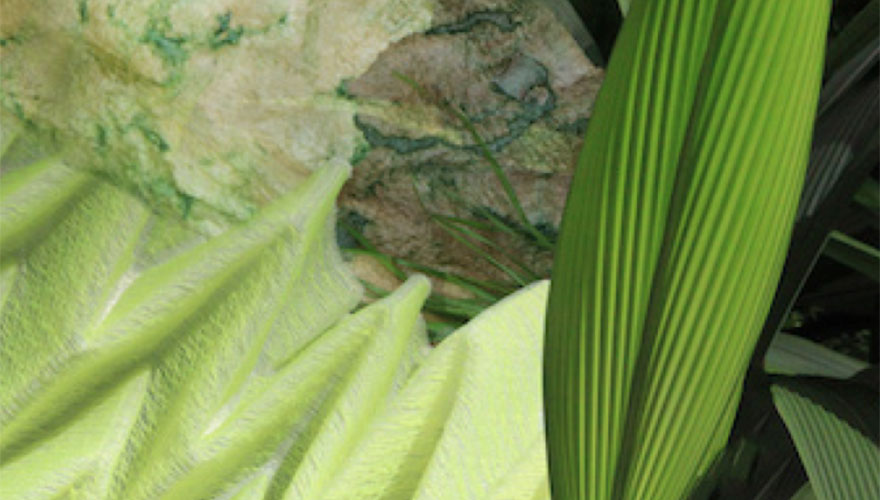Text by CLOT Magazine

Studio Samira Boon, in collaboration with Waag and the VU Amsterdam, is working on Living Aero Bacterial Systems (LABS), a project that focuses on a new material to improve our interiors with natural processes. A kombucha-based textile that enhances the air quality by integrating mosses and green plants. Studio Samira Boon is a textile architecture studio based in Amsterdam and Tokyo with a strong focus on creating flexible and dynamic environments aimed to improve the use and experience of spaces, acoustics, climate regulation and energy efficiency.
LABS: Future interiors aims to take the first step towards creating a living interior piece. How can we make our indoor climate healthier by developing new materials from living organisms? The enormous potential of living to matter around us will help the development of a living kombucha textile piece that focuses on improving air quality with the integration of mosses and green plants and conducting research into bacteria-grown textiles as a substrate for vegetation to generate diverse airborne bacteria emissions indoor while altering and directing the airflow.
On Thursday, April 2, 2020, the team behind the project are holding their first virtual meeting of a series of 3. The team highlights that they would like to start a constructive conversation with different parties who have been or are working on similar topics and create a space to reflect on key points, such as: How to cope with such living systems and their communities as a designer? Are they (airborne bacteria) contaminants or an essential link in the urban and human metabolism chain? Can we generate dynamic and biodiverse ecosystems within confined sealed environments of a building?
Speakers include Samira Boon herself; Lorena Trebi, a designer and PhD student in Design from the Department of Planning, Design and Technology of Architecture; Sandrine d’Haene, a researcher specialised in photosynthesis and Evelina Domnitch & Dmitry Gelfand, an artist duo who work across physics, chemistry and computer science with uncanny philosophical practice.






